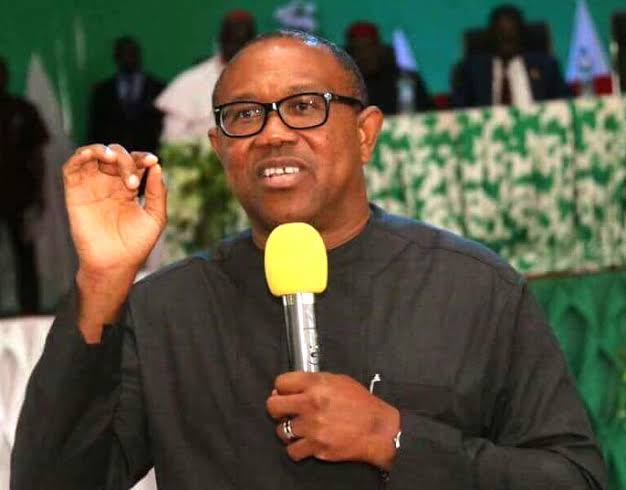The former governor of Anambra State, Mr. Peter Obi, Friday, said that he is preoccupied with the thought of a better Nigeria, not how to win political elections in 2023.
Obi, said that he wants to see a Nigerian society where all the sectors of the economy are functioning effectively to liberate the people from the shackles of underdevelopment and poverty sending most Nigerians to their early graves.
He spoke as a special guest of honour during the 80th birthday celebration of the father of African Philosophy, Prof. Uzodinma Nwala, at the Princess Alexandra Auditorium, University of Nigeria, Nsukka, UNN.
He said that Prof. Nwala’s scholarly prowess should be emulated and celebrated in order to position the country on the path of knowledge-based economy for rapid development.
He equally pledged to help the Department of Philosophy, UNN, where he graduated from establish a research centre on African Philosophy.
“Nigerians are always preoccupied by elections, I am not that type of politician. Politics for me is not about winning elections and being in office. For me, it is about building a better society. We are in a society where people don’t know where the next meal will come from but we are not discussing that. We are in a society today where poor businesses cannot get diesel to do their businesses, unfortunately, nobody is discussing that. We are in a society where our universities have been shut down for months, nobody is discussing that. These are the things I want to discuss, not 2023 elections.
“Elections can come when we have dealt with the issues that are bewildering us. I want to see our universities functional and our children back to classrooms. I want to see food on the tables of poor people in the villages. I want to see steady power supply so that our businesses can thrive,” he said.
While talking about Prof. Nwala, he also said “Prof. Nwala, remains one of those scholars that should be celebrated and emulated in Nigeria, unfortunately, we live in a country where people don’t celebrate knowledge, ideas, scholarship. This is the bane of the country because the world is driven by knowledge. We are in a knowledge economy and development. Nigeria does not appreciate knowledge, that is why we are not investing in education. That’s why we are not doing well.
“For me as a student who passed through the tutelage of Prof. Nwala, I remain his son and I celebrate him everyday,” he said.
In his address, the Vice Chancellor of UNN, Prof. Charles Igwe, while lauding the academic ingenuity of Prof. Nwala, who he said took African Philosophy to the global stage, he regretted the loss of academic contents which the generation of the octogenarian bequeathed to the academic world.
The Vice Chancellor who was represented by the Dean, Faculty of Social Sciences, Prof. Aloysius-Michaels Okolie, also said that Prof. Nwala’s great idea helped to position Nigeria, and the world at large for greatness, adding that his presence in UNN has ignited the spirit of scholarship and ideology amongst the academia.
In his address, the Acting Head of Department of Philosophy, UNN, Dr. Chugozie Anyaehie, said Prof. Nwala, was the first to globally develop African Philosophy as a teaching course in the university and projected the Department into the global academic history as a young lecturer.
While saying that he was the first graduate of the Department and a one-man-class graduate of the Department in 1967, he said that the Department aspires to sustain and institutionalize his leadership positions on African Philosophy.
He added that Prof. Nwala stood for the integrity of both his colleagues and students in the Department. He also said that the aspiration of the Department to institutionalize his leadership positions on African Philosophy would be enhanced by dedication of a research centre on the discipline in UNN as a place where African Philosophy was birthed.
Prof. Nwala, an ideologist, international scholar and politician was the first Philosophy graduate to be produced by any Nigerian university in 1967. He equally founded the State Volunteer Service Corps, SVSC, to initiate programmes for the reconstruction, rehabilitation and reconciliation of Nigeria after the civil war.
He became an Executive General Secretary of ASUU in 1980 and equally contributed immensely to the 1994-5 National Conference.



